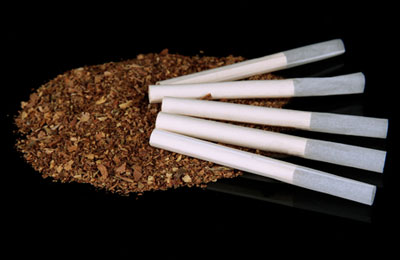
New GCC tobacco tax ‘could fuel illicit trade’
Dubai, May 23, 2013
A 100 per cent increase in duty on tobacco products in the GCC could fuel growth in illicit trade, beyond the control of police and customs authorities, as a consequence of an overnight rise in the cost of cigarettes, says a report.
Based on a round table discussion examining the impact of a new tobacco tax on smoking, and the effects on trade and social stability, a White Paper found no evidence that a one-step, 100 per cent overnight increase in duty on tobacco products will significantly affect consumption levels or smoking propensity.
It highlights concern that a sharp increase in cigarette prices will fuel the growth of illicit tobacco trade into the GCC countries, undermining tobacco control and leading to young people being targeted by gangs involved in smuggling.
Measuring the cost to the economy and society in general from increased trade in counterfeit goods, with the media reporting illegal markets springing up in the region, the White Paper spotlights a need for strong measures to effectively protect legitimate and local businesses.
It also points to a need for the GCC authorities to take a lead role in driving education and awareness programmes to warn people – especially the young – against the risks of smoking, removing the ‘cool factor’ from smoking, and reinforcing tobacco control by putting in place more barriers to smoking in public places to affect the habits of smokers.
The round table discussion, which took place in Dubai on 14 April, brought together experts from the business community and government departments.
Journalist and broadcaster Richard Dean, who moderated the discussion, said one of the key questions related to tobacco tax is whether an increase in price has an impact on smoking levels.
He cited recent reports from the World Health Organisation (WHO) which claim that, in general terms, a ten per cent price increase in a high income country will see a four per cent reduction in smoking levels. In poorer, economically deprived countries, the same increase would bring a reduction of between four and eight per cent.
Major Dr Khalid Al Hassan, head of the Anti-Forgery section of the Economic Crime Department, Dubai Police said the impact in the GCC would be far lower than four per cent.
“A country where the majority of the population has a high income, so they don’t care about a price increase. The price of cigarettes is not expensive when compared to other areas of the world. A price increase may affect some nationalities with a low income, but for UAE locals and expatriates, they don’t care. I don’t think tax would be the solution to problem,” he added.
Some experts, however, question whether a sharp rise in cigarette prices will have any effect on smoking, citing Japan, Ireland, Sweden, Singapore, Malaysia and Canada as recent examples of countries where higher tax did not have the desired effect.
Omar Obeidat, partner and head of Intellectual Property at Dubai law firm, said: “You have to consider that a price increase will invite people to trade in counterfeiting. If you add on top of that the issue of smuggling, which is a by-product sometimes of tax increases, you’re going to have a double impact of counterfeiting increases plus smuggling increases. Smuggling affects the legitimate trade and hits the revenue of the government.”
Illicit trade creates uncontrolled and unaccountable markets, resulting in children being able to obtain tobacco more easily, and the livelihoods of tobacco retailers being threatened.
It is estimated that approximately 600 billion illegal cigarettes are sold each year worldwide, representing 11 per cent of the global market. Illicit trade also means governments and legitimate businesses lose billions of dollars in revenue each year, while the cost of fighting crime is becoming increasingly expensive.
Davidson suggested that efforts to counter illicit trade in tobacco products could be helped by the kind of publicity which had deterred people in the UAE from, for example, risking issuing cheques that bounce because of the legal consequences.
He said: “It would be interesting if you could create the same knowledge and deterrent for tobacco so that no-one would ever contemplate touching a counterfeit product.”
Summarising the “risk-reward” nature of a major rise in tobacco duty against the alternative option of a phased-in approach, Davidson said: “The overriding objective of any government or regulatory authority has to be to improve the health of its population, and by necessity, it also has to be to maintain and improve government revenue streams.
“Attached to any reward there are going to be risks, and the risk in this instance is the risk of increased counterfeit trade derived from organised crime, which would result in a requirement for increased resources of enforcement and better regulation and stiffer penalties.” – TradeArabia News Service







